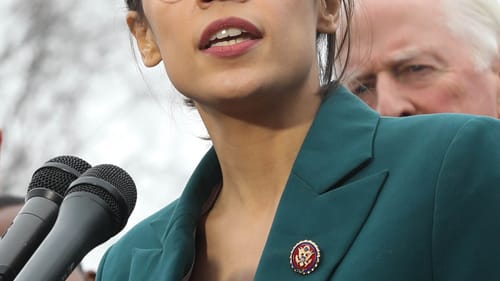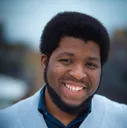Stay in the Loop
BSR publishes on a weekly schedule, with an email newsletter every Wednesday and Thursday morning. There’s no paywall, and subscribing is always free.
This vote is personal
In the 2020 general election, do we know why we’re voting?

There’s nothing like a flood of text messages from folks like Lindsay, Catherine, Matt, Kris, and all the others reminding me to vote. Sometimes they asked me if I could volunteer my time to help with the process for others. They checked in to see if I’d made a plan, and offered help on finding my polling place, which opened at 7am. I don’t know them, and I’m not sure if they’re real, but this is a small piece of a collective experience that has shifted over the last two decades. A nuisance? Sure. Welcome? Yes. Let’s annoy the hell out of people about voting, and let’s talk about why it is important, especially when it hasn’t always felt that way.
A new face for politics
For a long time, I wanted nothing to do with politics. My idea of a politician was an older white man in a suit, at least six feet tall and often depicted as caricatures in Sunday comics telling jokes that were way over my head. I didn’t know what they had to do with me. I’d never seen them around—politicians were tucked somewhere far away, hiding their true identities. None of them spoke like I did, shared my interests, or ever talked about the experiences of BIPOC. I didn’t think that was a thing they did, like it was taboo. Politicians didn’t serve people who didn’t look like them.
But if you told cynical twentysomething me that one of his favorite politicians was streaming video games on Twitch with almost 440,000 people watching ahead of the 2020 election, I’d be like...what’s Twitch and how do I have a favorite politician?
Recently, US Representative Alexandria Ocasio-Cortez streamed a four-hour session of Among Us with fellow rep Ilhan Omar. Playing with other popular streamers, AOC and Omar spent hours playing the game while encouraging viewers to vote. This isn’t new with AOC. She invited people to her island in Animal Crossing: New Horizons back in May. Pair this and how vocal she is about the time she spent as a bartender, and AOC is one of the first politicians to whom I felt like I could relate. She acknowledges where she came from, much like when she revisited the Bronx with Desus and Mero. Her historic run against Joe Crowley in 2018 was inspiring—that people like us could raise up and be voices for the unheard and the underrepresented.
More promises
Watching Obama win was empowering as well, but there were some underlying reservations. When he won in 2008, West Philadelphia erupted, much like how South Philly did a week prior when the Phillies won the World Series. He’d held a rally on 52nd Street, minutes from where I lived. The former hub of West Philly was alive, rich with the hope he’d promised. Other parts of the city, and the country, did not celebrate as much. Complacency settled in: we had a Black president, so racism had finally been solved! Instead, racism steeped in the periphery. The administration didn’t change the social climate like we thought it would. And while I certainly have my reservations and criticisms about his presidency, it still meant something that he had spread the notion that politics were, in fact, for all Americans.
But the street where he offered hope for America continues its decay, despite years of promises of its return to grace. The recent unrest in the neighborhood after Walter Wallace Jr.’s killing exacerbates that. Locally, what do we have to hope for in the Philadelphia area? How do we keep hope alive?
Hope and suppression
In the last four years, we’ve seen evidence of hope via grassroots politicians and efforts. Town halls, local elections, fundraising and donations—these are far more important than we’ve collectively realized. Social media, editorials, essays, panels, and podcasts contribute to the narrative locally and nationally. Having strangers text you reminders to vote is grassroots, too.

Marginalized people are voting in greater numbers. Younger people are voting. But also, many are experiencing voter oppression. In Texas, Crystal Mason was sentenced to five years in prison for “illegally voting” even though she didn’t know she was ineligible to vote in 2016. Mason “was on supervised release, similar to probation, for a federal felony conviction related to tax fraud. She didn’t know that Texas prohibits people with felony convictions from voting until they finish their sentence entirely.” When she voted, she cast a provisional ballot since poll workers were unable to find her name on the registration rolls. Her vote wasn’t counted, but Mason, a Black woman, is the only one who has been prosecuted for voting illegally out of the 4,000 provisional ballots that were rejected in her county.
When voting isn’t enough
The right to vote has long been a fight, and it’s a right that many of us take for granted. This year’s fervor for voting is promising, but that alone isn’t enough. Grassroots efforts are what will diminish voter suppression. Raising awareness through campaigns, editorials, and word of mouth will give people real, personal reasons to vote. I didn’t vote the first four years of my eligibility, and I’d only participated in general elections until 2016. I don’t think so much about how one vote can make a difference, but I consider how important it is to know who I’m voting for, what their policies are, and what issues on local and national scales need resolution. This may be the most important election of our lifetimes, but I’ve got a feeling that other critical ballot-box moments will come. I hope that we can all relate to the responsibilities we have as Americans to not only vote, but to know why we are voting.
Lament the robo-calls and the text spam all you want, but be grateful that you have the right to participate in this process. The ones who have that right have work to do to ensure that more people will and are able to vote, and ultimately, join the conversation.
Image description: A screen grab of a text message that reads, “Hi Alaina, I’m Anne, a volunteer with the Pennsylvania Democrats. Public records show that you’ve already voted! That’s awesome! Can we count on you to remind three friends or family to vote today?”
Image description: A photo of US Representative Alexandria Ocasio-Cortez. She is wearing glasses and a green blazer and speaking into a microphone at an outdoor event.
Sign up for our newsletter
All of the week's new articles, all in one place. Sign up for the free weekly BSR newsletters, and don't miss a conversation.

 Kyle V. Hiller
Kyle V. Hiller